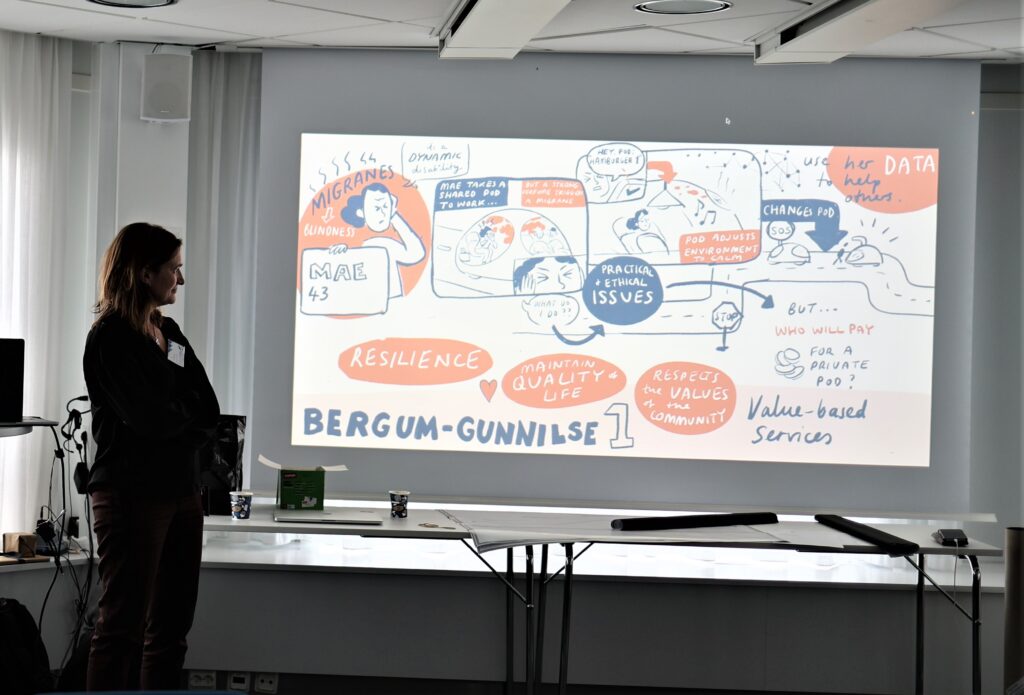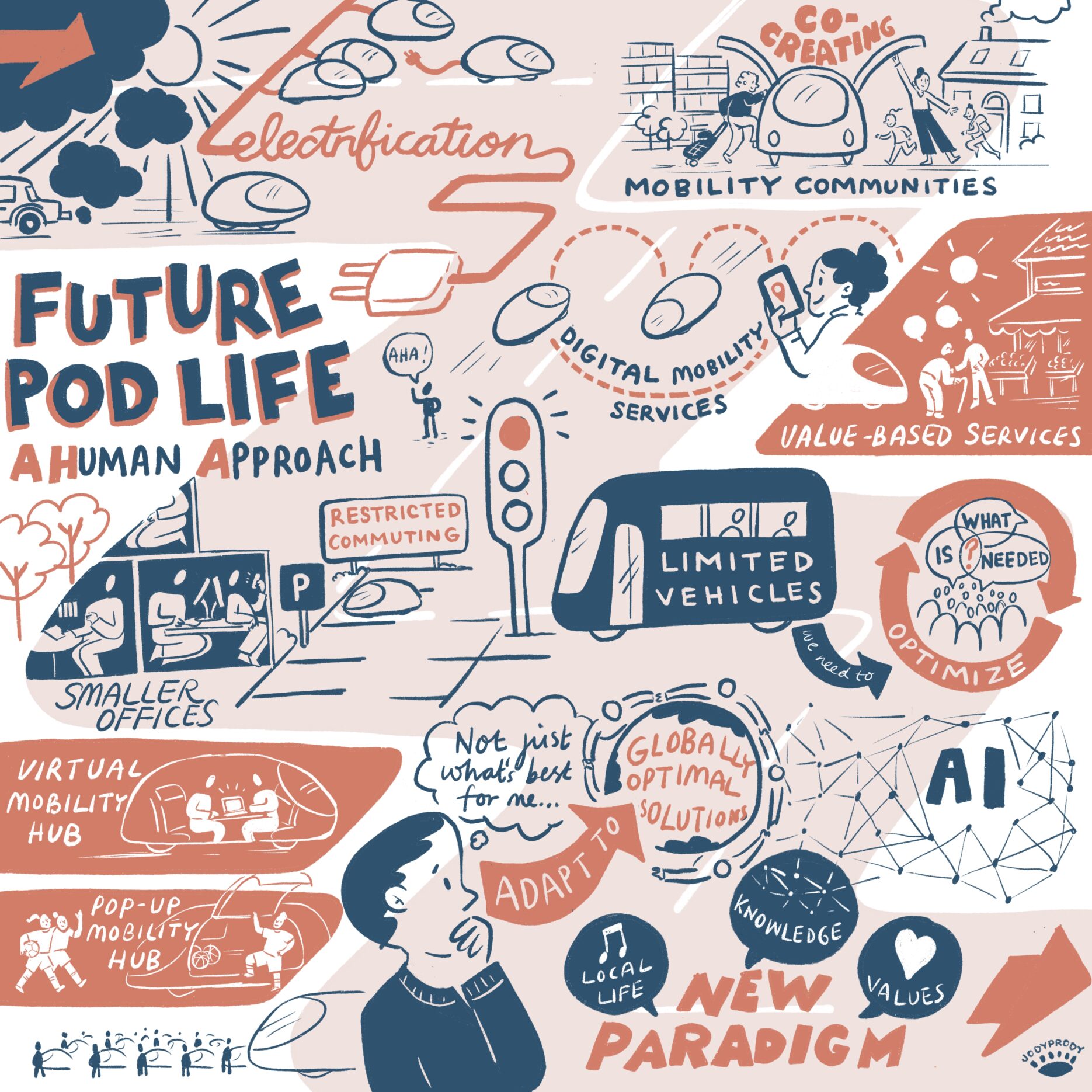As AHAII moves into its final phase, our new Co-Creation Tools and Future Mobility Insights were put to the test an exciting in-person workshop.
The entire workshop, which united AHAII stakeholders and a number of interested people from inside and outside Halmstad University, played out within the ‘Future Pod Life’ World that was created from the outcomes of the AHAII project. Within this world, participants experimented with the co-creative methodologies developed in the project to create concepts and scenarios for the first and last mile services and mobility hubs.
The Future Pod Life is a world where mobility solutions are highly regulated because fossil-fueled, privately owned vehicles have been banned in the cities and the automotive industry has electrified. Public and private actors are co-organizing and developing transport solutions together and social sustainability has become a stronger focus for service design, urban planning and policy-making; so that people are encouraged to come together in their neighborhoods to co-create their own mobility communities. Shared vehicles and digital mobility services, AI and machine learning support flexible, collective, globally optimal mobility solutions that prioritize local life, values and knowledge seriously in innovation processes.
After an initial presentation, participants got to try out the common ground game and the co-design with friction cards, developed thanks to iterations of the results of the AHAII project. Starting from the two core concepts of a value-based travel service and a flexible (mobile or virtual) mobility hub, participants from different organizations worked in mixed groups with both methods to create their own scenarios. Supported by the co-creative methodologies, each group built a narrative around a central character using the AHA II Experience and Challenge Map that invited them to develop characteristics, challenges and solutions for their character in a specific mobility service setting.

Both the common grounds game and the friction cards were successful in challenging participants’ initial ideas for the scenario and helped focus the discussions. They worked as a test to envisioned services and narratives but also brought forward new discussions points and themes between different stakeholders.
Four different scenarios emerged from the workshop, each of which highlighted specific aspects of future mobility in the two areas: maintaining quality of life and respecting community values, community-based services, local engagement and ‘real’ human assistance in a digitally mediated context. Illustrated in real time by Jody Prody, these scenarios demonstrated the specific challenges and potentials when it comes to connecting more remote futures with concrete everyday needs, desires and practices, as well as locally grounded environments and people.

Illustrations by JodyPrody, Photo credit Patrik Palo, Vaike Fors.

